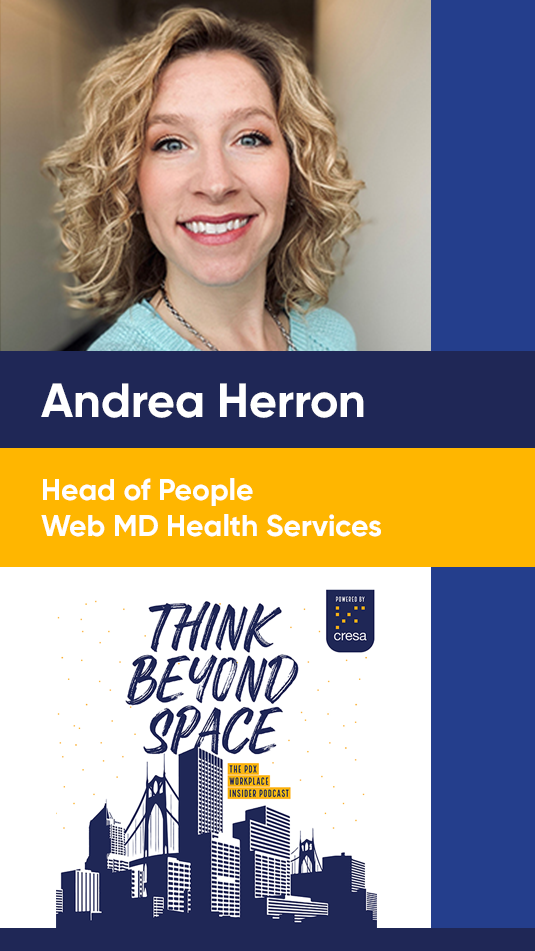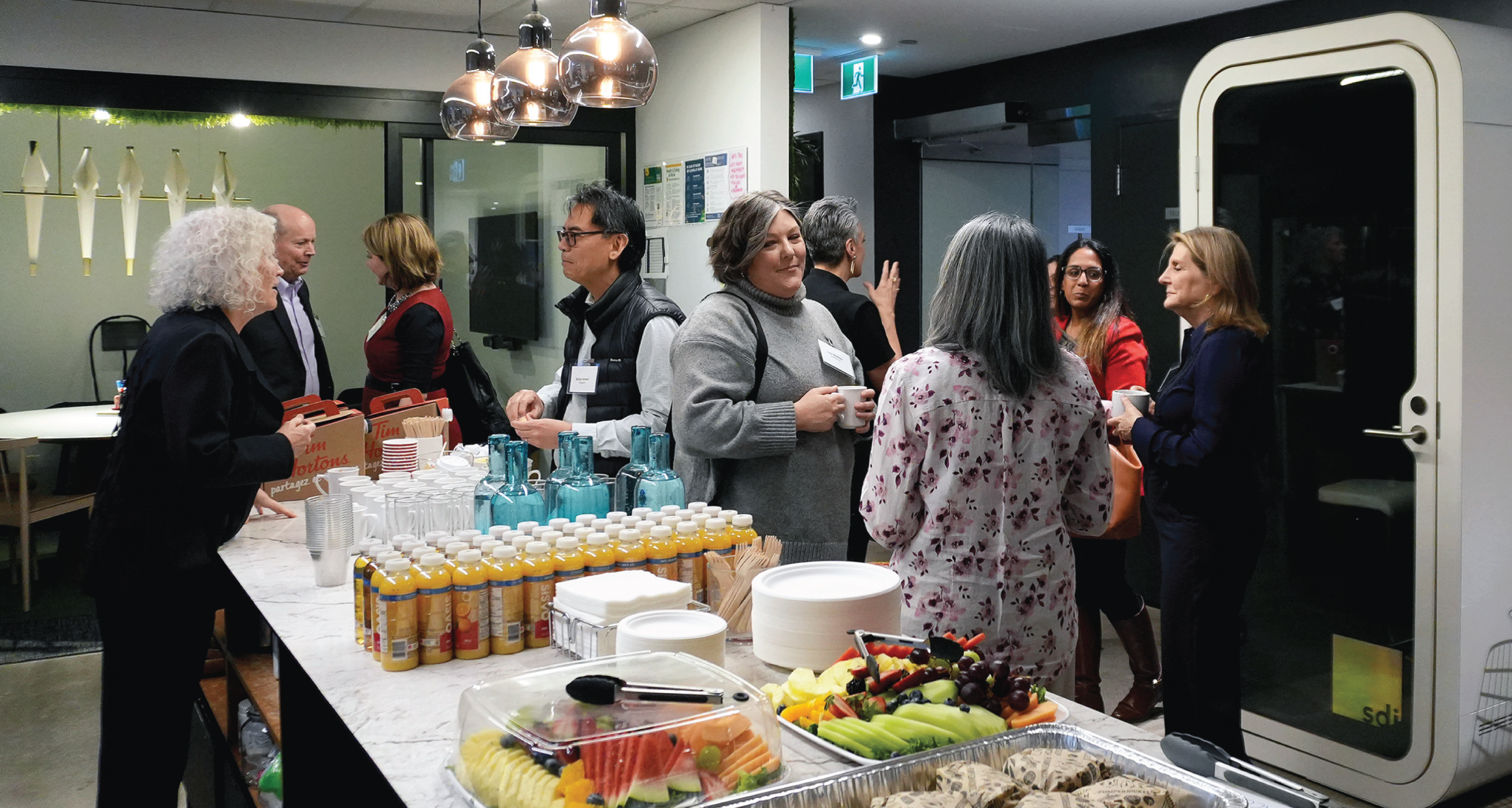Andrea Herron, Head of People for WebMD Health Services, on the Evolution of Employee Wellness
On a recent episode of Think Beyond Space | The PDX Workplace Insider Podcast, host Blake St. Onge sat down with Andrea Herron, Head of People, for WebMD Health Services. Blake and Andrea dove into how the pandemic has affected leaders in the Human Resources field, and how employers can take advantage of this unique time to implement programs that better take care of employees.
The Toll of the Pandemic on HR Leaders
With around 3,000 employees that work for WebMD Health Services, at the beginning of the pandemic Andrea’s team had to focus on the immediate needs of employees. It was urgent for Andrea’s team to come up with a plan and ensure employees had the right equipment to work remotely, all while facing an incredible amount of uncertainty
The pandemic has shown that being a leader in HR means so much more than just policy making, benefits administration, and hiring great talent. Andrea said, “We have to take care of the staff, but it also extends to the HR person and their family which a lot of times people don’t consider because it’s very outward-facing, it’s very ‘take care of everyone else’- which is of course what we do.”
Taking Care of Employees as Entire Individuals
Throughout the pandemic, Andrea has made sure the WebMD Health Services leadership team was focusing on flexibility, being empathic to each employee’s situation, and having respect and awareness of people’s mental health. “Whatever coping mechanisms, groups or places people had as outlets for their concerns of daily life, were gone in an instant. I firmly believe that we need to take care of people as entire individuals, and that can be really difficult especially if you are having your own hard time as a leader,” Andrea said in the episode.
Leading with that ethos of flexibility and empathy, Andrea asked her leadership team questions like, do we really care if people do their job 8 am-5 pm vs 3 pm-11 pm? How can we be flexible and still get the job done? How can we collaborate and what are we actually trying to achieve, because it is going to look different going forward.
These questions coincided with WebMD Health Services finishing an acquisition that doubled their employee size the same week they had to close their office due to the pandemic. The company they acquired was predominantly remote already, and Andrea said, “as much as it was challenging for us to go remote, it was great timing because we were integrating this other group that was already remote and will forever be. Our company, and I think a lot of companies, probably leaped forward a decade in flexibility and willingness to have people work remote.” It wasn’t just the flexibility in terms of the way people work and the hours they work but also trying to keep some of that energy and connection so people feel they do not lose that as well. WebMD implemented Zoom sessions with health coaches, yoga teachers, and games like Zoom bingo during the middle of the day. Even with these, Andrea acknowledges there are challenges, “yes there is Zoom fatigue, but it is all we have. No longer can you just pop by and check in on someone for five minutes, but keeping eye contact (even virtually) is important to make time for.”
The Effects of Remote Work on Talent Acquisition
With the expansion of remote work, Andrea believes organizations will find it to become increasingly difficult to hire and retain staff for companies that do not implement flexible work options, “I have noticed in tech the last few years, Portlanders are getting poached from the (San Francisco) Bay and Seattle, and it has escalated the salary market in Portland for tech workers. I can see that expanding nationwide and getting more difficult to say ‘well geographically you have to be here and commute into a physical space’ because you are going to shrink your talent pool, and you’re probably going to have to pay more for it. Companies will have to make a value judgment and decide what they want their culture to be and live with the consequences of that.”
Evolving Expectations of Employers
The challenges and issues of this past year have brought to life the new expectations of employers. “The younger generations, and quite frankly a lot more of us, have completely different expectations of organizations now than in generations past. The workplaces in some ways have taken on characteristics of local communities,” Andrea noted.
There are many questions that employers have not had to answer before, such as where do you stand on social issues? What does your company stand for and where are you donating your money? How do organizations make sure workplaces are as diverse and equitable for everyone? Andrea believes that employers are just starting to understand these new expectations of employees.
To listen to Andrea’s episode and to future episodes, subscribe to Think Beyond Space | The PDX Workplace Insider Podcast on Apple, Spotify, Google Podcasts ,or wherever you listen to podcasts.




